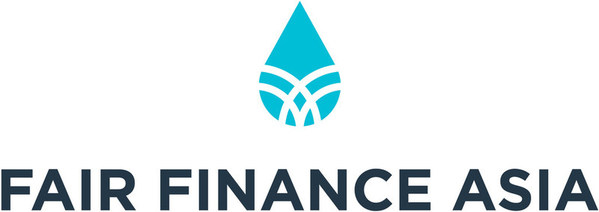 |
PHNOM PENH, Cambodia, Nov. 10, 2021 /PRNewswire/ -- In the past five years (2016–2020) since the signing of the Paris Agreement, financial institutions operating in key Asian countries identified in Fair Finance Asia's latest study have provided USD 683 billion in loans and underwriting services to companies active in coal mining and coal-fired power operations in the region. The biggest investors in the coal sector, based on the study, are Japan's Government Pension Investment Fund, India's Life Insurance Corporation, US asset managers BlackRock and Vanguard, and Malaysian investors Khazanah Nasional, PNB and EPF.
Coal accounts for 74% of all electricity produced in India, 66% in China, 59% in Indonesia, 52% in the Philippines, 47% in Vietnam, and between 1% and 45% in the other eight Asian countries covered in Fair Finance Asia's (FFA) new study in collaboration with Profundo, which focuses on the region's linchpin nations for just energy transition. Together, these 13 countries[1] continue to finance, operate, and develop new coal-fired power projects with approximate life cycles of 35 to 40 years, effectively derailing Asia from aligning with the IPCC's 1.5 degrees Celsius scenario.
A vision of a different energy future in Asia is urgently needed. However, simply replacing coal with renewable energy is not necessarily a straightforward solution, particularly if such drastic shift causes increased injustices in other parts of the regional and global energy system. Therefore, on the occasion of the ongoing COP26 in Glasgow, this study highlights the Fair Finance Asia network's call for the Asian financial sector to urgently stop coal finance domestically and overseas. A call is also issued for Asian leaders to focus on implementing time-bound, just energy transition strategies that respect the rights and active participation of communities in the planning of large energy projects; protect the rights of workers by mainstreaming Human Rights Due Diligence (HRDD) during the transition; and safeguard the health, livelihoods, culture and heritage of communities.
Commenting on the study, Bernadette Victorio, Program Lead of Fair Finance Asia, says, "Just transition should be a fair and equitable process that leaves no one behind. It's disappointing that many Asian nations are not stepping up their commitments at COP26, and the lack of urgency to act is alarming especially for a region most at risk of the negative socio-environmental impacts of climate change. At the G20 level, there is already an established Sustainable Finance Working Group co-chaired by China, Indonesia and India take successive Presidencies in 2022 and 2023 respectively, and Japan takes G7 Presidency in 2023 – Asia has a real opportunity to influence global leadership for swift change in these coming years, and as civil society we have to work together to hold them accountable.
Key highlights of the study were presented on Nov 6, 2021 at the COP26 side event, 'Channeling Finance from Coal to Clean in OECD by 2030 and in Asia by 2040'.
The study's findings and recommendations are available via https://bit.ly/3D0cE9E.
[1] FFA member countries: Cambodia, India, Indonesia, Japan, Pakistan, Philippines, Thailand and Vietnam. Other countries: Bangladesh, China, Malaysia, Singapore and South Korea. |
For more information please contact:
Shreya Kaushik
Knowledge Management & Research Specialist
Fair Finance Asia
Email: shreya.kaushik@oxfam.org
About FFA: Fair Finance Asia is a regional network of civil society organization (CSOs) committed to ensuring that financial institutions' respect and uphold the rights and social and environmental well-being of local communities. Eight countries within the region are part of the FFA network: Cambodia, India, Indonesia, Japan, Pakistan, the Philippines, Thailand, and Vietnam.
For more information about FFA visit www.fairfinanceasia.org
Follow us on Twitter @FairFinanceAsia